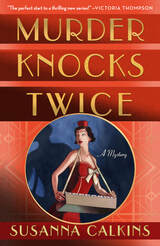 The launch of MURDER KNOCKS TWICE has been such a whirlwind! But I do enjoy meeting readers at my book events, and telling new stories about my research and writing. I've also had the chance to write a few blog posts on different aspects of my research and writing. Here are a few:
1 Comment
 It's the Bees' Knees! It's the Bees' Knees! Well the cocktail break is finally over and I have returned to my blog!!! I’m no longer entrenched in the gritty plague-ridden world of 17th century London—I’ve now ventured into 1920s Chicago—a world that is both sparkling and shadowy. The first in my new series is called MURDER KNOCKS TWICE (Minotaur/St.Martin's), and it is set in a 1929 speakeasy on Chicago’s West Side. MURDER KNOCKS TWICE IS EXPECTED TO LAUNCH |
| I asked author M.A. Richards on my blog today, to share his thoughts about doing research for his work-in-progress. (Note, he writes these as A. M. ben Yitzhak). (Hint: he couldn't quite borrow the Dead Sea Scrolls from the Israel Museum, but he did the next best thing...) |
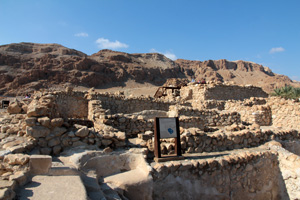 Qumran (Source: Israel National Parks)
Qumran (Source: Israel National Parks) Okay, I’ve never lashed my body to a mast and filled my ears with beeswax before firing up the laptop (in the old days, it was easier to build dramatic tension if you were striding up the stairs toward the wooden doors guarding the entrance to your local library, like hometown cousins of Scylla and Charybdis), but I have thrown myself off a cliff into the adventure of discovery – sometimes just for the sake of learning!
I’m not talking about looking for relevant statistics for Professor Cudlip’s “Theory of Infinity” course, either. I’m talking about feeling the burn in your frontal lobes, counting your pulse up to 200-plus beats per minute, experiencing the joys of carpopedal spasms. There’s something forbidden, even illicit, about digging into history. You might know where you will start your explorations, but you have no idea where you will end up.
Perhaps I’m a voyeur by nature…or an eavesdropper…or just a busybody, but the headlines of 2016 (ISIS, Republicans, North Korea, Wall Street), in my opinion, pale beside the questions lurking in the shadows of history (Did Oswald act alone? Did FDR know the Japanese plans to bomb Pearl Harbor? Did Stalin poison Lenin?) Or perhaps I’m a conspiracy theorist…
I know for sure that I am a schizophrenic. I must be…I write under two names. M. A. Richards is the author of a spy novel series featuring Nathan Monsarrat, a former deep cover operative with the CIA – the first novel, CHOICE OF ENEMIES, launched in January 2016 while the second offering, A THOUSAND ENEMIES, will be available in November 2016 (both published by Sunbury Press).
I also scribe historical fiction as A. M. ben Yitzhak. Currently, I’m conducting research on the Zealots, the group of breakaway radicals who fled Jerusalem during the Roman rule of the Second Temple Period to live a more pure life in the barren Judean wilderness…and fought the Empire to a standstill from 66 to 132 AD, when the last of the Zealots, led by Shimon bar Kochba, bled to death in the desert south of the Dead Sea.
To conduct historical research on a secretive group that lived two thousand years ago demands familiarity with the writings of the period…so, you need (1) access to the original materials (if you ever ask the Israel Museum to borrow the original – not digital - Dead Sea Scrolls for a few days, you’ll hear a really rich laugh) and (2) you need to read Latin, Accadian, Aramaic, and a few other “dead” languages. I suppose you could trust someone else’s translations, but then you are dependent on someone else…
There is another roadblock, which might be a blessing, the more I think about it: so few original texts were written two thousand years ago. I can rely on the aforementioned Dead Sea Scrolls, Josephus, and other apocryphal writings (e.g., the minor prophets), but the scholarship of this period is severely limited and, unless you’re on a first name basis with the Witch of Endor, it would be tough to interview Judas of Gamala, Simon bar Giora, Menahem ben Judah or any of the other original kana’im and siqari’im – the founders of the Zealots.
A third difficulty refers back to the opening of this epic…research is such a Siren! It’s addictive! Impossible to stop! I can’t tell you how many times I shut down the stacks in local and university libraries. At least, the internet never sleeps, but unless you induct your spouse into the Eleusinian Mysteries, chances are good that the time you spend researching the daily habits of the Zealots will do nothing for your marriage and family life.
Faced with so many challenges, what’s a historical novelist to do (and I’m not talking about agents and editors shaking their heads and informing you that the market for Zealot fiction is incredibly, infinitesimally tiny)?
Travel! Read the State Department warnings…and ignore them. Listen to your family and friends…and ignore them. Read the newspapers and watch the twenty-four cable stations…and ignore them!
You wanna write about the Zealots? Go to their home. Stomp around their ancient stomping grounds. You probably will not discover a missing cache of Dead Sea Scrolls in the unexplored caves of Qumran, but you will absorb the zeitgeist of the period as you stumble over sandstone boulders, tread on red desert poppies, and quaff liter after liter of tepid water beneath the broiling desert sun.
You don’t have to go the fully Monty, either…you can sleep not in a tent beneath clear, star filled skies but in an air conditioned hostel that offers hot showers and a fantastic breakfast of yoghurt, cheese, olives, bread, fruit, and vegetables. After a few weeks of following in the footsteps of the Zealots, you will have collected enough ambiance to fill the pages of a historical novel and a wonderful appreciation for the amenities of the twenty-first century.
When you’re back home, having made amends with your spouse, family, and employer, when you’re sitting in front of your laptop with English translations of Josephus and the Dead Sea Scrolls piled on your desk, when you launch your fingers against the monolithic blank digital page…you will always have your best ally by your side: your imagination.
After all – it’s not history. It’s historical fiction.

international espionage novels. Born in Lowell, Massachusetts, he received his Bachelor of Arts degree in Theater Studies from Connecticut College and his Master of Arts degree in English from the University of Massachusetts at Amherst.
During a career as a Cultural Attaché in the Department of State that spanned more than two decades, he served in Baghdad, Jerusalem, Lagos, Moscow, Seoul, Tel Aviv, and Washington, D.C. He also served at U.S. Pacific Command in Honolulu as the Special Advisor to the Commander. He speaks Arabic, Hebrew, Korean, and Russian. M. A. divides his time between Palm Beach and Tel Aviv, where he indulges his passions for motorcycles, photography, and archaeology.
Visit www.MARichardsBooks.com to learn more about M. A. Richards and CHOICE OF ENEMIES.
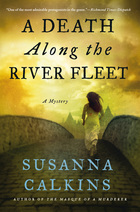
And my reply, which may sound more flippant than I intend, is just this: Enough to tell the story.
I've written elsewhere about balancing historical accuracy and authenticity. So, I thought today I'd given an example of how I seek to have my characters interact with historical details, hopefully without just dumping my research on my readers.
I could have picked any passage, but in honor of Easter, I picked an excerpt from my forthcoming novel, A DEATH ALONG THE RIVER FLEET. In this, scene Master Aubrey has just returned from selling pamphlets (unsuccessfully) on Maundy Thursday, (known in other parts of the world as "Holy Thursday.")
There were a couple of factual details about Easter that I wanted to bring up in the scene. First, since the Middle Ages, there was a tradition in England that on Maundy Thursday, the monarch would give money to the poor and wash the feet of twelve poor people. [Indeed, while the etymology is not certain, the word "Maundy" may have come from the Latin world mendicare ("to beg.")] But we know from the diarist Samuel Pepys, in 1667, King Charles II opted against the practice that year, asking the Bishop of London to do it for him.
Second, there had been an ongoing debate about the moveable date of Easter--some scholars of the time insisted that the date should be the same each year, similar to how Christmas was always on December 25.
Third, in general, I wanted to allude to the fact that England was on a different calendar (the Julian Calendar) than Catholic nations like France and Italy, which had adopted the calendar created by Pope Gregory (the Gregorian Calendar).
I couldn't use all the research I had at my fingertips, but I tried to work in a few of the more salient points within their trade as the printers and sellers of books. So you can see what details I managed to include...
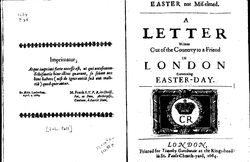 John Pell, Easter not mis-timed (1664) Wing / 395:11
John Pell, Easter not mis-timed (1664) Wing / 395:11 The printer seemed a bit disgruntled. It had long been the custom for the monarchs of England to wash the feet of twelve men and women, as Jesus had washed the feet of the Apostles before the Last Supper. Having the Bishop of London take on the task instead of the king clearly irked him. Sometimes Lucy suspected the printer had Leveller sensibilities and liked it when the royals took on more mundane responsibilities.
“Which pieces did you bring?” Lucy asked, changing the subject. In truth, she was always intrigued to know how the packs got decided. Master Aubrey had a knack for knowing what to sell to attract a crowd that she desperately hoped to learn for herself one day.
“Could not very well sell murder ballads and monstrous births on Maundy Thursday, hey? Brought along John Booker’s Tractatus paschalis and John Pell’s Easter Not Mis-Timed. Too many of them, it seems. Only the sinners’ journeys, like the one you wrote about that Quaker, sold today.”
He kicked the still-full bag, looking in that moment a bit like Lach, causing Lucy to hide a smile. A rare miss for Master Aubrey. Most people did not care how the date of the moveable holy day was affixed in the almanacs each year. Nor did they care why Catholic nations celebrated Easter and Christmas on different days than they did in England.
"...I just wanted to know: if the oldest daughter of an earl was going to soon be marrying the oldest son of another earl, how would they address one another? The setting is 1860s London, if this helps answer my question. I have read many websites and guide-books that explain how the peerage would be addressed by various people in various situations, but I am having trouble finding information about two people, both children of earls, who are engaged to be married. Would they be more casual with one another? Or would it be inappropriate to address one another without their appropriate title? Your help would be greatly appreciated. Thank you." --Maryam.
So, first, the basics. According to Tessa Arlen: "The eldest daughter of an earl would be called Lady Susan; that would be the extent of her title until she marries. If she were to marry an ordinary man she would be called Lady Susan and then his surname: Lady Susan Blogs for example. The eldest son of an earl might be given an honorary title of his father's of a lower rank this would be given to him until he inherited his father's title. For example, his father who is Roger Parker, Earl of Bainbridge might bestow the honorary title of viscount on his eldest son. So the son's name and title would then be Denis Parker, the Viscount Lord Winslow. It is also important to remember that the Earl of Bainbridge would have a family name, in this case Parker."
This seems pretty straightforward so far, right?
Tessa continues: "I can't imagine why this young couple would call one anything other than by the first names when they were alone together. And if they are English the usual terms of endearment! If they were together out in society Lady Susan would be referred to as the Vicountess Lady Winslow and her husband would be the Viscount Lord Winslow and they would be announced as Lord and Lady Winslow. When Lord Winslow's father dies and he inherits the earldom he will become the next Earl of Bainbridge - and be called Lord Bainbridge and his wife would become the Countess of Bainbridge. The order of precedence can be very confusing - even for Brits. So tell your friend to follow this pattern and she will sound like she knows what she is talking about!"
Excellent advice!
Alyssa Maxwell also commented: "Sometimes the son and heir would be called by his courtesy title without Lord in front of it, as in Brideshead or Bridey as friends and family called him in the book." She also directed us to Jo Beverley's Guide to English Titles in the 18th and 19th centuries, a very helpful resource!
As Anna Lee Huber further notes: "In the case of an earl, he usually does have a lesser title (viscount or baron) he can grant his eldest son as a courtesy, but it's also possible he doesn't. (Author's choice since it's fiction.) In that case he would be called Mr. Parker by his fiancé in public, Denis in private. The rules for daughters & sons of earls are slightly different. Daughters of dukes, marquesses, & earls receive the honorary Lady before their first name. Only sons of dukes & marquesses receive the honorary Lord before their first name."
And to round us out, Ashley Weaver says, "I have always found [Laura Chinet's] site really useful for reference. She has little charts and everything!" [I will say, however, that what Laura Chinet describes for the 18th and 19th century may be different from 17th century conventions. In my research, I have seen many letters between family members that use endearments, like "My dearest Anne." So it stands to reason that if they use such intimacies in written letters, they would do the same in private conversations. There is a formalization of speech and manners that happened in the mid 18th century that was not as pervasive in earlier centuries-SC].
Ultimately, in my opinion, this comes down to an accuracy vs authenticity kind of question. I think writers of historical fiction should try their best to be as reasonably accurate as possible, but ultimately their focus should be on telling the best story possible, without jarring the reader.
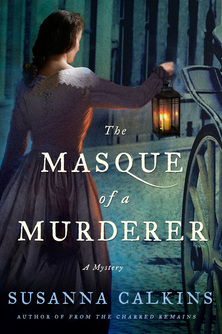
And while I may not be quite as giddy when my first novel, A Murder at Rosamund's Gate (2013) launched two years ago--because nothing can ever compare to the release of a first novel--I'm still as loopy as I was last year, when From the Charred Remains (2014) entered the world.
Recently, in preparation for the launch, I've been answering a lot of fun and interesting questions about The Masque of a Murderer (the historical background, the story and characters, and my writing process etc). So, I thought I'd do a quick round-up here!
I welcome you to:
- Learn more about what inspired my historical mysteries in general, and The Masque of a Murderer more specifically
- Discover the difference between a 17th century Masque and a Mask (and why I titled my book as I did)
- Read an interview with Lucy Campion, printer's apprentice
- Explore the world of the penny press and murder ballads and last dying speeches
- Discover why women might wear the dreaded scold's bridle and how that device features in my book
- Learn more about 17th century Quakers--and the tensions that surrounded them
- Follow Lucy Campion through A Day in the Life (giving testimony at a trial, no less) (post coming soon!)
- Discover the most difficult scenes for me to write (hint: it has something to do with Lucy's two love interests)
- Find out if The Masque of a Murderer passed The Page 69 Test
- Learn something about my writing process
- Tell me if what I know about publishing makes any sense, and what was different this time around
- Share in my excitement over this MADE IT MOMENT!
Thanks so much for sharing this journey with me!!! And I appreciate all the bloggers and reviewers who hosted me, including those through Amy Bruno's Historical Fiction Virtual Blog Tours!
And I'm always so grateful to the wonderful people at Minotaur, especially Kelley Ragland and Elizabeth Lacks, and my agent David Hale Smith, and of course my wonderful alpha reader, Matt Kelley!!
(and now, I turn my attention back to A DEATH ALONG THE RIVER FLEET, due out April 2016!!!!)
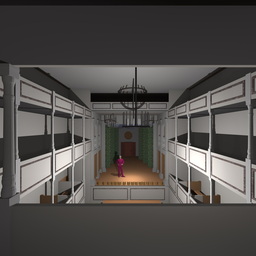 Reconstruction of Lincoln's Inn Fields
Reconstruction of Lincoln's Inn Fields Ironically, it was not originally intended to be a theater, but a tennis court. (You can see the long rows of box seats on either side where an audience would have watched a match). The Lisle Court only became a theater in 1662, before being temporarily closed during the plague in 1665. [There may also have been a murder that occurred there, but somehow that tale has only recently resurfaced :-) ]
In doing my research, I came across the work of Steve Bouler, a theater professional and academic, as well as being an extremely talented designer of virtually reconstructed theatrical playhouses.
It's hard to express how immensely helpful these reconstructions are to a researcher. Since so many of these Renaissance and Restoration playhouses are now gone, we must rely on extant sketches that can be difficult to track down,and even more difficult to interpret.
I know I spend a lot of time looking over faded sketches with teeny print, trying to figure out how everything fits together. But when I came across these reconstructions, I gained a far better sense of how plays would have been staged (and received). You'll understand when you check out Bouler's amazing panoramic reconstructions! Check it out!
Image: http://historicalplayhouses.com/Lincoln_s_Inn_Fields.html
Susanna Calkins
Historian. Mystery writer. Researcher. Teacher. Occasional blogger.
Categories
All
1660s
16th Century
17th Century
18th Century
1910s
1920s
19th C.
20th Century
21st Century
A Death Along The River Fleet
Advertisements
Alcohol
Alpha Reader
Amazon Pre Order
Amazon Pre-order
A Murder At Rosamund's Gate
Anagrams
Anne Perry
Anthology
Art
Authorship
Award
Awards
Blogger's Block
Blogging
Blog Hop
Blog Tour
Bloody Good Read
Bombings
Book Events
Book Giveaway
Booksellers
Book Trade
Bouchercon
Calendars
Card Playing
Caricature
Cats
Chambermaid
Characters
Charles I
Charles Ii
Charles Todd
Chicago
Chocolate
Christmas
Cia
Cockney Slang
Cocktails
Coffee
Coincidence
Contemporary
Cover Design
Covers
Creativity
Crime
Criminals
Critical Thinking
Cromwell
Crossroads
Csikszentmihalyi
Cuckold
Curiosities
Defoe
Detectives
Detectives Oath
Disease
Dogs
Early Modern
Easter
Editing
Edwardian England
Etymology
Examples
Excerpt Marg
Excerpts
Fairs
Fate Of A Flapper
Feedback
Female Protagonists
Female Sleuths
Fire Of London
Flow
Food
Forensics
Forms Of Address
French History
From The Charred Remains
Ftcr
Future
Games
Gangs
Giveaways
Golden Hind
Great Fire
Great War
Grit
Guest Blogs
Guest Interviews
Guest Post
Guest Posts
Guilds
Hanging
Historical Fiction
Historical Mysteries
History
Imagination
Inspiration
Interviews
Ireland
ITW Authors
Jests
Jewelry
Language
Last Dying Speeches
Leisure
Libraries
London Bridge
Lucy Campion
Macavity
Magistrate
Malice Domestic
Maps
MARG
Markets
Masque Of A Murderer
Matg
Medicine
Medieval
Medieval Period
Memory
Merriments
Merry-making
Methodists
Midwives
Mindset
Miscellany
Monsters
Moonstone
Motivation
Murder
Murder At Rosamund's Gate
Murder Ballad
Murder Knocks Twice
Mysteries
Mystery
Mystery Tv Shows
Newgate
Newspapers
New Woman
Nietzsche
Nursery Rhymes
Opera
Orwell
Persistence
Pets
Philadelphia
Piracy
Pirates
Plagiarism
Plague
Poison
Popular Film
Popular Press
Potions
Printers Row Lit Fest
Printing
Private Investigators
Proactive Interference
Procrastination
Prohibition
Promoting Books
Pseudonyms
Psychology
Publication
Public Executions
Publishing
Punishments
Puritans
Puzzles
Quakers
Radio Shows
Reader Questions
Reading
Receipts
Reformation
Rejection
Religion
Research
Restoration
Riddles
River Fleet
Samuel Pepys
Scene Development
Science Fiction
Scold's Bridle
Secret London
Setting
Seven Things
Shakespeare
Short Story
Sign Of The Gallows
Sleuths In Time
Smithfield
Speakeasy Mysteries
Speech
Spying
Strange Things
Teaching
Thank You
The 1640s
The 1650s
The 1660s
Theater
Thief-taker
Timeline
Titles
Travel
True Crime
Tyburn Tree
Valentine
Wilkie Collins
Winchester Palace
Witches
Women
World-building
Writier's Life
Writing
Writing Prompts
Young Adult
Archives
May 2023
February 2021
January 2020
December 2019
August 2019
May 2019
April 2019
March 2019
February 2019
September 2018
November 2017
July 2017
June 2017
May 2017
November 2016
September 2016
July 2016
June 2016
April 2016
March 2016
February 2016
January 2016
December 2015
November 2015
October 2015
September 2015
August 2015
July 2015
June 2015
May 2015
April 2015
March 2015
February 2015
January 2015
December 2014
November 2014
October 2014
September 2014
August 2014
July 2014
June 2014
May 2014
April 2014
March 2014
February 2014
January 2014
October 2013
September 2013
August 2013
July 2013
June 2013
May 2013
April 2013
March 2013
February 2013
January 2013
December 2012
November 2012
October 2012
September 2012
August 2012
July 2012
June 2012
May 2012
April 2012
March 2012
February 2012
January 2012
December 2011
November 2011
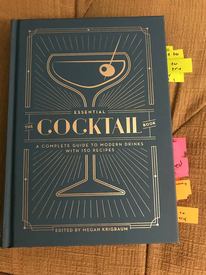
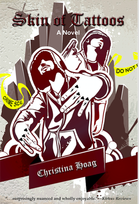

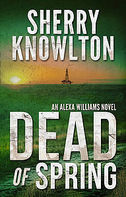
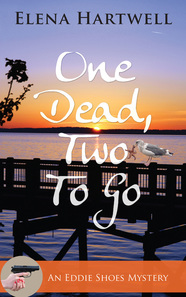

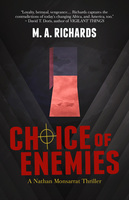
 RSS Feed
RSS Feed